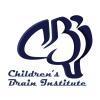Get Care
Ohtahara Syndrome Treatment
Treating Ohtahara Syndrome
Hard To Control Seizures

Ohtahara syndrome (OS) is a rare form of epilepsy with hard-to-control seizures that occurs in infants. Children with OS often have developmental delays. The causes of OS vary between metabolic disorders, genetic mutations, and structural abnormalities in the brain. A child’s outcome with OS is daunting.
Medications are used to help control seizures; however, OS seizures are notoriously drug-resistant. Doctors will try medications first to manage the child’s seizures, including Felbatol, Zonegran, Sabril, and Topamax. High doses of steroids are often given to children. Many patients will be given both AEDs and steroids.
With respect to metabolic disorders treating the disorder can help improve seizures.
Vagus nerve stimulation is a treatment option. VNS therapy requires implanting a stimulator that can lessen or prevent seizures. The device sends pulses of electrical energy to the brain.
A low-carbohydrate, high-fat diet has been shown to control seizures in some children. It prevents seizures through ketosis, a metabolic process that responds to this nutritional combination.
There are surgical options, and these options remove parts of the brain. A focal resection removes an area of the brain. A hemispherectomy removes a much larger portion of the brain, most of one side.
Other therapies are symptomatic and supportive; these can include treatments for stomach or lung problems, abnormal muscle tone, or irritability. Speech, physical and occupational therapies are usually offered.
Even with treatment, most children who survive OS will have seizures for their lifetime. The Rare Epilepsy Network (REN) helps connect families with support.
FAN
Our Fast Access Neurology (FAN) Service ensures a clinic visit with an expert pediatric neurologist within 24 to 72 hours after referral or initial contact with Children’s Brain Institute. We believe each child with neurological, cognitive, and psychiatric disorders deserves immediate attention and care to provide an opportunity to reach optimum brain function and capacity and prevent developmental delays.
Accepted Health Insurance Types
Various health insurance types are accepted, including Medicare and most HMO and PPO insurance.
Call (781) 863-0007 or click to request a same-day appointment.
